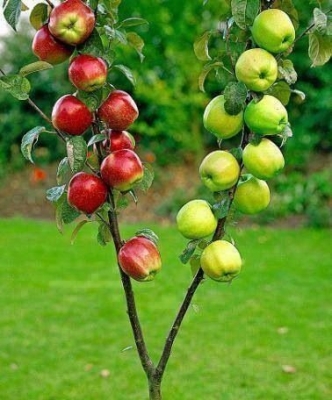
An affirmative reply to this question is amazing but true. It is a fact that many trees can produce the fruit of another kind of tree by a simple method called ‘grafting’. It is an artificial method or technique of vegetative reproduction in which a small branch or bud of any desired plant is inserted into another rooted plant. This is called plant propagation. If a bud from a twig of pear tree is carefully inserted in a slit made in the bark of a quince bush, a pear twig will grow. The quince bush will bear both pears and quinces.
In the same way, an almond tree can be made to produce both peaches and almonds. Although sometimes grafting is used to produce freak trees and bushes, this technique is of immense importance in agriculture. Lots of experiments in this field are still being carried on to produce better and new varieties of fruits, flowers and corns etc.
The greatest advantage of grafting is that it can be used to better the quality and quantity of a particular product. It is possible for a nurseryman or gardener to be sure that his young trees or shrubs will bear the same quality and variety of fruit as the parent tree. A twig taken from a tree and grafted into another tree will produce the same type of fruit borne by the tree from which it was taken.
There are many methods for inserting the budded twigs or scions, as they are called, into the stock of another plant, but two rules must always be followed. First, only related species of trees or shrubs can he grafted. This implies that apples can be grafted onto pear and quince trees, and peaches can be grafted onto apricot, almond, plum or other stone fruit trees. It is impossible to graft apples on a peach tree. Secondly, the cambium layer (a layer of actively dividing cells) which carries the vital sap of scion must touch the cambium layer of the stock on which it is grafted. Otherwise the grafted twig cannot grow.
There are different techniques of grafting. It can range from inserting a single bud under the bark to grafting long twigs across the wound of a tree in order to heal wide wounds in the bark. Tissue culture is popular these days in which cells from a plant are removed to propagate in another plant to obtain a hybrid product or the product of the original plant.
The technique of grafting is now widely applied in case of animals as well as human beings. There have been surgical operations in which a bone taken from the ribs has actually been grafted onto the nasal bone to form a new nose. But the best application is in cases of severe burning where the healthy skin from one part of the body is grafted onto the burnt tissues to remove scars.



